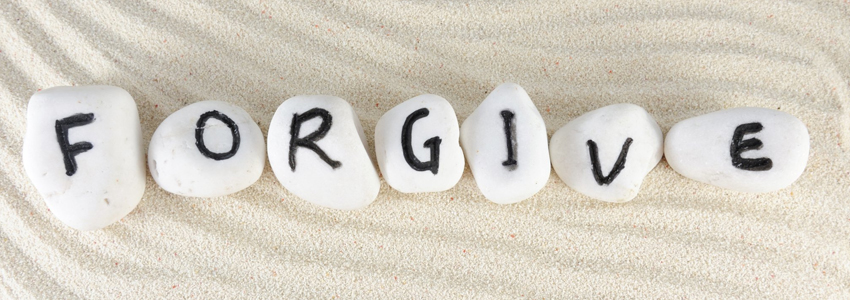Forgive; Start Anew!

When we judge harshly, when we condemn or criticize, when we resent others or feel guilty about ourselves, we are hurting ourselves far more than we hurt others. Until we begin to practice forgiveness, we will be haunted by the bitterness of the past and the past will continue to repeat itself
If I hold resentment against someone, I may not harm that person but will surely harm myself. Many suffer from bodily disease because of the grudges they hold in their minds against people.
A woman suffered from severe rheumatic pains in the knee joint. No medicines were of any avail. The pain went on increasing, until a holy man asked her, “Do you hold a grudge against anyone?”
She hesitated, then answered, “my mind is seething with resentment against my own sister who did not behave properly towards me.” Holy man said to her, “Your pains will disappear only when you forgive her and make peace with her.” At first, she found it difficult to do so. Later, she met her sister, gave her a hug, and said to her, “Let bygones be bygones! Let us begin anew!” To her amazement, she found that soon thereafter the pains disappeared.
A Course In Miracles teaches us that all disease arises out of our failure to forgive. Medical researchers are also of the opinion that an unforgiving nature may be one of the root causes of all human ailments. One researcher even calls arthritis “bottled hurt.” When we judge harshly, when we condemn or criticize, when we resent others or feel guilty about ourselves, we are hurting ourselves far more than we hurt others. Until we begin to practice forgiveness, we will be haunted by the bitterness of the past and the past will continue to repeat itself.
Once you free yourself from resentment and learn to forgive, you take control of your life and refuse control by the other person. Forgiveness is not a sign of weakness. It takes strength, courage, and a generous spirit to understand that people do not wrong us or hurt us deliberately. Perhaps they could not help it, perhaps they need help, and their harmful actions and hurtful behavior are nothing but cries for help!
Raju and Ram were childhood friends. Their fathers and their fathers’ fathers had been friends for generations. Their families owned adjacent pieces of land in the village, and the boys had gone to the same school, shared childhood pranks and grown up together.
As the years passed, the village faced a severe water shortage. Ground water levels had fallen so low, that reservoirs and wells had begun to run dry. There was just one common well where water was still available, and the farmers had to share the water.
Forgiveness is not a sign of weakness. It takes strength, courage, and a generous spirit to understand that people do not wrong us or hurt us deliberately
An irrigation ditch was dug close to the well, and water was pumped into the ditch every day. Each farmer was allotted a turn at a specific time, when the water from the ditch would be diverted to his field. After the specified time, water would be diverted to another’s field.
Under the stress of sharing the water, the villagers began to squabble. Neighbours, friends and relatives exchanged heated words. Tempers flared and old bonds began to break with the strain. Raju and Ramu met at the irrigation ditch one morning. Both needed water for their fields desperately. Each one wanted to have the water diverted immediately to his field.
An intense argument ensued. Both men were carrying shovels to open the canals that led to the fields. The shovels wielded like weapons in the heat of the quarrel. Ramu’s shovel hit one of Raju’s eyes causing him to become permanently blind in that eye.
Raju could not forgive or forget the incident. Years passed, and anger and resentment grew in his heart until he was able to withstand it no longer. One evening, he took his hunting knife and walked out to the fields. Ramu was at the irrigation ditch, attending to his water supply. Raju stabbed him to death with a single plunge of his knife.
The law took its course, and Raju was sentenced to life imprisonment for the pre-meditated coldblooded murder of his childhood friend. After ten years in prison, Raju became terminally ill. His wife sent a mercy petition to the State Governor asking clemency for her ailing husband. Ramu’s grown-up sons opposed the move vehemently. They made it known all over the village that if Raju was released, they would kill him and his family members...
This is how anger and an unforgiving nature shatters the peace of a whole community and destroys the lives of individuals and their families. The passion of a moment erupts into an irreparable action and results in life long resentment and vengeance that spans generations!